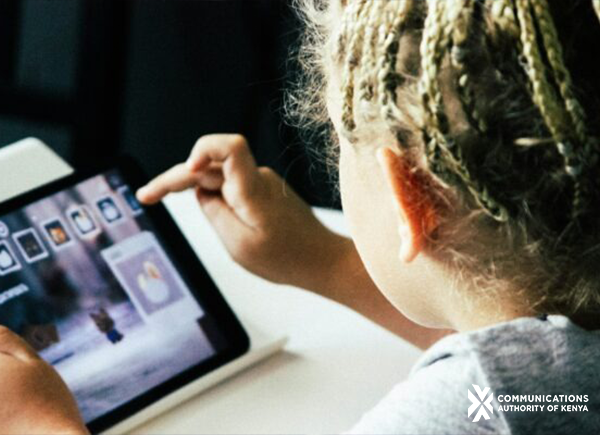Child Online Protection

Patricia Muchiri, the Acting Director of Public Education & Awareness, delves into the role of the Communications Authority of Kenya (CA) in child online protection with ODHIAMBO NEEMA.
Child Online Protection (COP) is a global initiative that was established by the International Telecommunications Union (ITU), the UN agency responsible for all international and telecommunication (ICT) matters, as a subset of the broader cybersecurity agenda. The ITU is mandated to come up with a holistic way to deal with the challenges that children and youth face as they navigate the cyberspace.
Many people are unaware that Kenya’s Communications Authority (CA) sits on the ITU council thanks to Kenya being a member state of the council. This means that the authority has the delegated role, by the national government, to represent it on matters of ICT. In this capacity, the authority is a global player that executes the child online protection framework as established and provided by the ITU council. As such, CA has designed programmes and initiatives around the provided framework, thereby contributing to internet safety.
Additionally, the authority is the regulator of the converged ICT sector in Kenya. Their roles include managing the country’s cyberspace, issuing frequencies, regulating competition in the ICT sector, and issuing resources such as personal mobile numbers. Consequently, CA has a sacrosanct role in consumer protection and in the regulation of various goods and services in the ICT sector, which includes child online protection.
“We are now looking at children as consumers of ICT, and they are very early adopters. We do know, from research we have conducted and data collected, that they are spending a lot of time on the internet. They are learning, they are creating relationships. So, that is our responsibility concerning consumer protection,” she explains.
Regarding the dangers that children may be exposed to online, Patricia is quick to list several risks: cyberbullying, internet addiction, catfishing, revenge porn, and gambling. These vulnerabilities have led to children being lured, blackmailed, and manipulated, developing unhealthy addictions, and in some instances, have even led to suicide. While the internet can be a positive resource, its misuse necessitates the creation of safeguards, especially for children and the youth.
In light of this, she cites public awareness as a critical tool for regulation. She explains, “There has to be the creation of awareness by the regulator, by industry- by which I mean our licenses, vendors (for instance, the people who import mobile handsets into our country), and the education sector, who are a key component in this space. Public awareness is broad, and spans everything from media campaigns and IEC materials to learning through entertainment.”
One of the key initiatives that CA sponsors is the Kenya Drama Festival and the Kenya Music Festival. During the various presentations, children can learn about child online protection and the associated risks and vulnerabilities, in a very fun way. This way, they make complex information easy to understand. Parents, children, and guardians can then take the recommendations, implement them, and safeguard the future.
Moreover, the authority is a major exhibitor in the annual teachers’ conferences known as Kenya Secondary Schools Heads Association (KESSHA) and Kenya Primary Schools Head Teachers Association (KEPSHA).
Additionally, aside from their running COP Phase II programme, they currently have a programme called Kikao Kikuu. It is designed for counties and includes creating more awareness around the COP agenda. So far, they have visited 20 counties.
As we wind up the interview, Patricia is keen to emphasise that the responsibility of keeping children safe online is a collaborative one, and particularly calls on parents to take on a more hands-on approach; “As a parent or guardian, you have principal responsibility for the children under your care and your watch. When it comes to child online protection within the home, you are responsible for how much time your children spend on the internet, for the gadgets you buy them, their social media presence as minors, you are responsible for who talks to your children on the internet, who sends them money via the sim cards you have registered for them, and even for your Wi-Fi and streaming app passwords.”
Consequently, she urges parents to set rules about allowing their children to go to their rooms with their gadgets and about how long they can access the internet. She also asks parents to secure their gadgets with passcodes and passwords and to create strong Wi-Fi passwords.
“Get involved, have a conversation with your children, be their friend. Let them tell you about things like Snapchat, which some of us don’t even understand. Let them be your partner in terms of what they do on the Internet,” she concludes.




